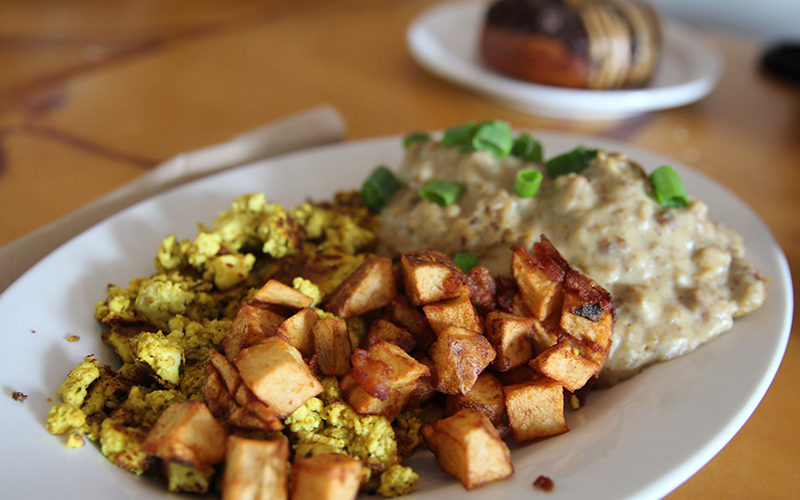SCOTTSDALE – They have names like Kale and Clover, Flower Child and Grabbagreen. If you’re searching for a vegan or vegetarian restaurant in Scottsdale, you likely don’t have to look far.
HappyCow, which provides a dining guide for vegans and vegetarians, lists dozens of eateries in Scottsdale.
The area has so many offerings, Wallethub recently ranked the city at No. 8 for vegan and vegetarian “friendliness” in the country. The company evaluated areas such as accessibility, affordability and quality.
Vegetarians generally avoid meat, seafood or poultry. Vegans add dairy and eggs – or anything that comes from an animal – to that list.
There’s a reason so many eateries now offer plant-based options: The vegan industry has skyrocketed in recent years. In the U.S., business that promoted vegetarian or vegan claims accounted for 17 percent of all product launches compared to 6 percent five years ago, according to Innova Market Insights.
Younger generations – Millennials and Generation Z, in particular – have driven much of that growth, according to NPD Group Inc.
Lisa Schmidt, a clinical dietitian and professor at Arizona State University, said many people who adopt plant-based diets such as veganism or vegetarianism have numerous health benefits. Plant-based diets are low in saturated fat, which is correlated to heart disease, Type 2 diabetes and other health risks.
Schmidt said people have misconceptions about plant-based diets, especially their concerns about protein intake. She said many people eat more protein than needed when they eat meat, and it’s easy to fulfill protein needs on a plant-based diet.
People also associate veganism with wealth. For example, one writer for the International Business Times who tried a vegan diet complained that “cool vegan recipes” often require expensive ingredients. However, vegan advocates dispute that claim.
Phoenix-area vegan Elyse Guidas said people see veganism as a cool new trend that involves eating out at restaurants or shopping at Whole Foods.
“That’s very prohibitive for people who experience poverty,” Guidas said.
In Scottsdale, vegan options are readily available, but the city scored lower on affordability in the Wallethub survey.
Wallethub analyst Jill Gonzalez said in an email that eating vegan doesn’t need to be expensive. She said buying ingredients such as nuts, seeds and grain in bulk and frozen vegetables and fruit can cut down costs.
In its study, she said accessibility to vegan options was a big factor in the a city’s vegan “friendliness.”
“Having easy access to these types of establishments certainly adds to the vegan-friendliness of any place. In New York, for example, more than 56 percent of restaurants offer vegetarian options, and almost a third offer vegan meals,” Gonzalez said in the email. “At the other end of the spectrum, nearby Newark only has about 20 percent of restaurants that offer vegetarian options, and merely 5 percent offer vegan options.”

